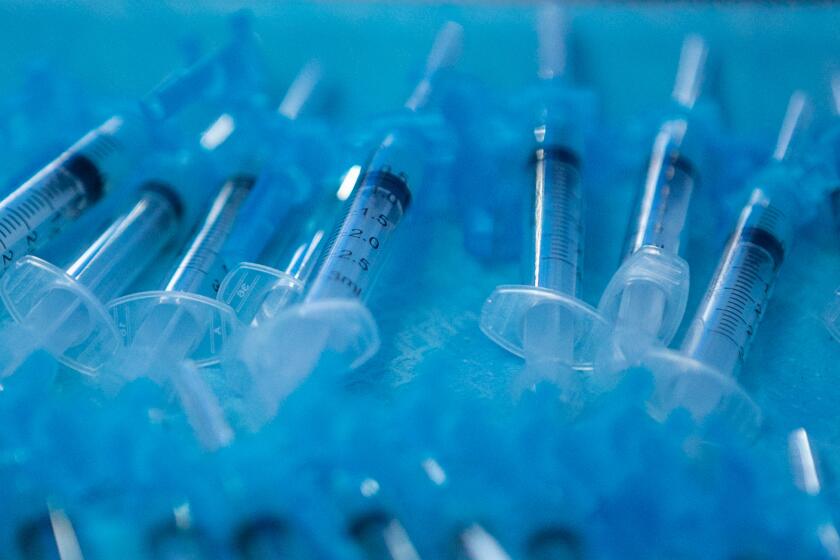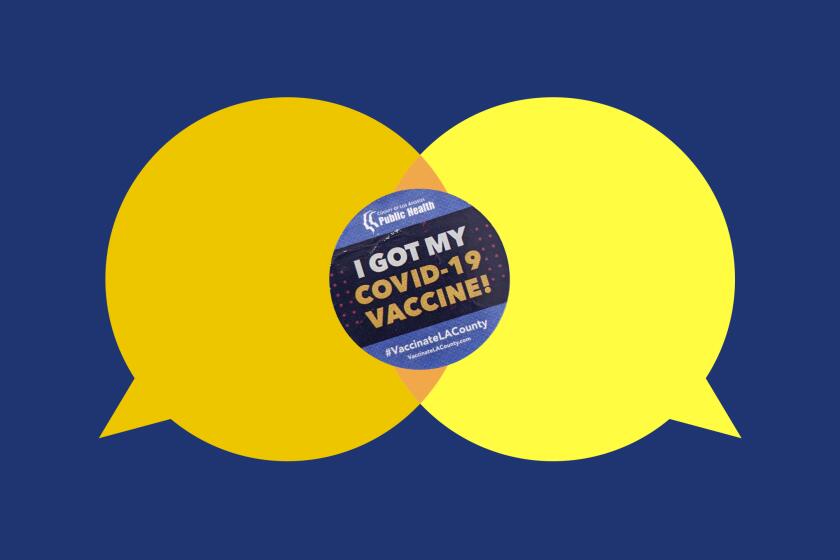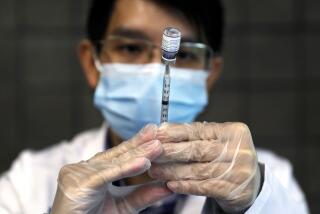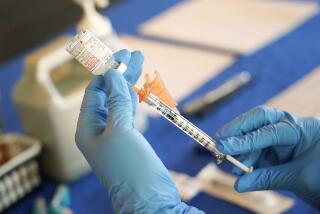Op-Ed: Vaccine-hesitant people can still change their minds. As a doctor, I’m seeing it happen
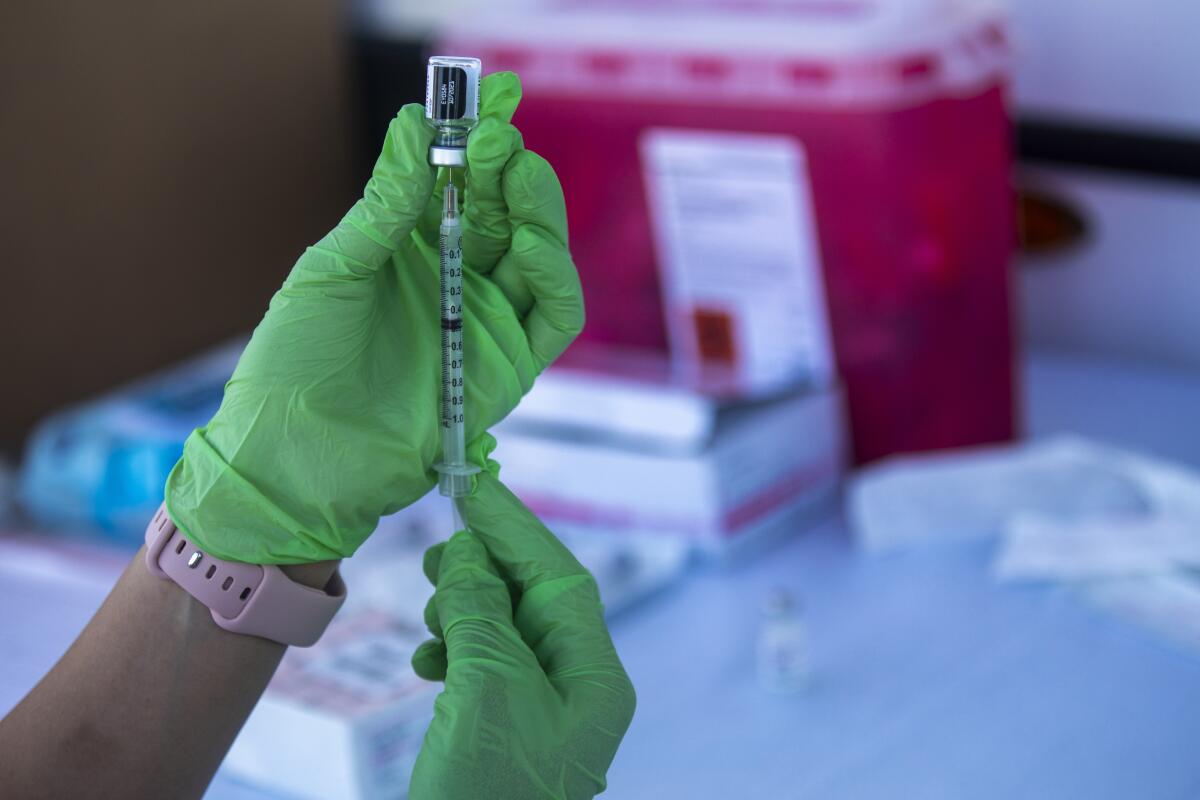
- Share via
Earlier this month, I saw an elderly patient with underlying chronic obstructive pulmonary disease who was admitted to the hospital with a bone stuck in his throat. He underwent endoscopic removal the same day; a routine pre-procedure COVID-19 test came back negative.
The next day, going over his discharge instructions, I asked if he was vaccinated against COVID-19 yet. He was not, and the room got awkwardly silent for a few seconds. But he followed up by asking if he could get his first dose now. It made me reflect on when I got vaccinated.
When COVID-19 vaccines first became available at my hospital in December 2020, I was not among those lining up to get a Pfizer or Moderna dose. I was one of the few doctors in our group exclusively seeing new COVID-19 admissions, yet I did not sign up for either opportunity.
I am not a vaccine skeptic and never have been. At that time, I was simply going to be out of town the first week shots became available, on a trip I could not have avoided even if I had more notice of when the vaccines would be ready. My wife was in her final year of residency in a different state, and my monthly weeklong visits were the only time we got to be together. I was observing all other COVID-19 precautions, wearing a mask everywhere, liberally using hand sanitizer and, besides visiting my wife, social distancing to the point of isolation.
My unvaccinated family members brought up the Tuskegee experiment as a reason they didn’t want the COVID vaccine. Their fear is valid, but the pandemic is not the same.
To see her, I drove 1,000 miles each way, every trip accomplished in a single day to avoid staying at a hotel. My trips were too precious to move even for the vaccine, and besides, I wasn’t sure then if there would be adequate supply for the second dose.
I imagine that if I had gotten sick, I would’ve been classified as one of the anti-vaxxers who didn’t trust the science and was part of the problem. Fortunately, I didn’t get sick and was fully vaccinated by mid-February. I have since gotten a booster and do not intend to drop precautions like masks any time soon. The pandemic continues unabated, with the Omicron variant accounting for an estimated 59% of sequenced COVID-19 cases in the U.S. as of last week.
It is easy to assume every unvaccinated person is set in their ways. Some people may very well be, but even now there are many people on the brink of getting the vaccine — like me at the end of 2020 when travel plans got in the way, or like my patient earlier this month who just needed me to ask.
My patient said that he had been trying to stay home as much as possible. With his son and daughter-in-law in a different city, he would have needed an Uber to get to a vaccination appointment, and he was afraid of catching COVID-19 in the process of trying to prevent it. One of his friends, he said, had just left the hospital after spending two months there battling COVID-19.
You want them to get vaccinated. They don’t. Now what? Tips from experts to have a conversation that could possibly change their mind.
My patient was doing what he could to protect himself and not be a burden on his family. I ordered him a dose of his preferred vaccine and provided information on an appointment for his next dose. I hope he keeps it.
The federal government estimates that just 62% of adults are fully vaccinated, and 73.3% have gotten their first dose. With COVID-19 cases again rising during a winter surge sparked by the Omicron variant, improving those numbers still counts. Organizations including the Cleveland Clinic and the American Medical Assn. have shared tips on talking with friends, family members or patients who may be vaccine-hesitant, emphasizing that we need to understand people’s doubts and counter misinformation.
When I see future unvaccinated patients, I will steer clear of assumptions and talk with them — and their family members — about their choices. These conversations may not always be easy to initiate, but more discussion and understanding could still help save lives.
Prabhava Bagla is a doctor of internal medicine in Orlando, Fla.
More to Read
A cure for the common opinion
Get thought-provoking perspectives with our weekly newsletter.
You may occasionally receive promotional content from the Los Angeles Times.
